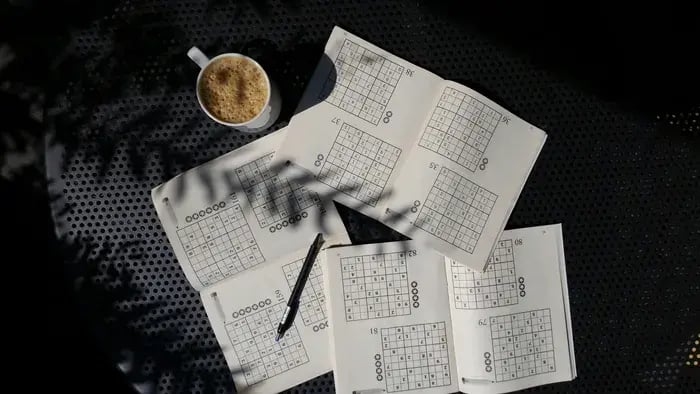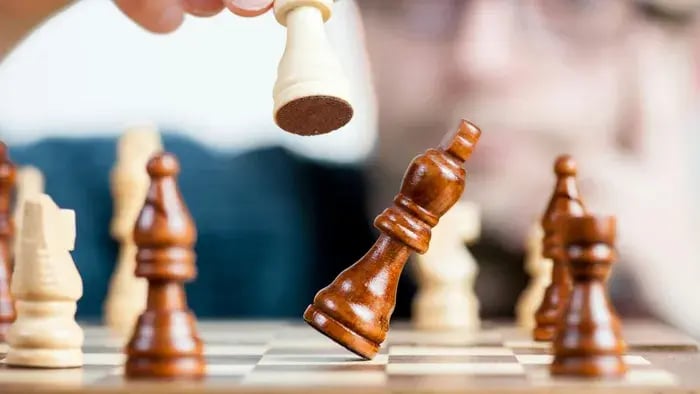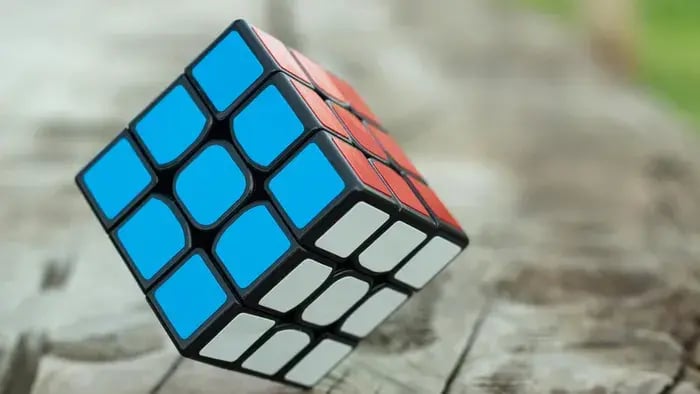- Scrabble
- Checkers
- Sudoku
- Jigsaw Puzzles
- Chess
- Rubik’s Cube
- Memory Match
Introduction
Both physical and mental health are extremely important for a child's overall wellness. A healthy body allows a child to participate in a number of different activities and have the energy to perform all their academic and extracurricular duties. On the other hand, good mental health and strong cognition allow a child to concentrate well and remember what they have studied.
Just like the body, one can keep one's mind healthy with specific exercises meant for the brain. According to genes published in 2019, playing different types of mentally stimulating games like puzzles can help a child think more critically and become creative.
7 Brain-Boosting Games and Puzzle Games for Kids and Teens
If you are on the lookout for some mentally stimulating games that can improve your child's cognition and concentration, then your research is over. Here is a list of some handpicked games that can benefit your child academically and also promote engagement.
Scrabble
Scrabble is a multiplayer game played on a board with small alphabet tiles. It requires each player to take a turn and place one alphabet tile in a particular place. The goal is to make a meaningful word. Players start by drawing at least seven tiles from a pool of different alphabet tiles. With each turn, they replenish their supply of tiles.
Checkers
Checkers is a game that requires strategic thinking and analytical planning. It can help your child become a more critical thinker. It consists of a board with black and white blocks, similar to a chessboard. Two players can play this game at a time. The game involves moving one's game pieces forward and capturing the fragments of one’s opponent. Kids can play both the board and virtual versions of this game.
Sudoku

Sudoku is a grid type of puzzle that may help in improving your child's numerical competency and logic. The grid is divided into nine 3×3 subs which are also called boxes. The major objective of the players playing this game is to fill these boxes with numbers between 1 to 9. However, the goal is to ensure that each number only appears once in every subgrid, column, and row. It requires great memory and arithmetic skills.
Jigsaw Puzzles
A jigsaw puzzle is a classic game consisting of pieces that must be combined to create a scene. Kids can start assembling the pieces by brainstorming and thinking of critical solutions. This may also help them become more detail-oriented and enhance their ability to concentrate.
Chess

Chess is one of the most stimulating brain games that may enhance your child's memory. The game requires high-level strategy and planning. It is also about understanding your opponent's moves and acting accordingly. It consists of a game board with black and white boxes. There are different types of game pieces, such as a pawn, the king, the queen, and many more. Moreover, the players have to follow a set of pre-designed rules to play the game.
Rubik’s Cube
Rubik’s Cube is one of the most iconic and oldest puzzle challenges that requires logic and patience. It consists of a cube with a 3*3 colored grid. Each of the colored boxes can move in all directions. The game is about intermixing all these boxes and then arranging them to combine all the boxes of the same color. It is a puzzle that requires a deep level of practice and understanding.
Memory Match
Memory match is a primary-level puzzle activity you may start playing with your child to develop a basic sense of logic and understanding. This game would require you to put a stack of cards together. Each card should have a similar card to make a pair. These cards must be placed on a table with only their back visible to the child. The child would get one turn to flip and see a card. The challenge is finding the pair with the least number of turns possible.
Conclusion

All these memory and puzzle games can enhance a child’s ability to concentrate and focus on their studies. Moreover, these games can also become a great leisure time activity for kids to use their time to enhance their skills.
Pakhi writes with the belief that dessert isn’t just a dish—it’s a mood. Her work blends storytelling with tips, turning timeless treats and trendy bites into accessible moments of comfort, celebration, and creative expression.
The views expressed are that of the expert alone.
The information provided in this content is for informational purposes only and should not be considered a substitute for professional medical advice, diagnosis, or treatment. Always seek the advice of your physician or another qualified healthcare provider before making any significant changes to your diet, exercise, or medication routines.
















